In my years of studying and working in the field of environmental management, I’ve seen firsthand how recycling plays a pivotal role in addressing global warming and climate change. Drawing from my experience and supported by extensive research, I can affirm that effective waste management programs are essential for countries looking to reduce their reliance on raw materials. This approach, as highlighted in the World Bank’s insights, not only conserves resources but is also crucial in reducing greenhouse gas emissions.In this discussion, I’ll share insights into the recycling and waste management practices of 10 countries that are leading the way in this crucial environmental endeavor.
10. Brazil
9. Austria
8. Canada
7. Wales
6. United States
5. Switzerland
4. Singapore
3. South Korea
2. England
1. Germany
My observations align with findings from the Environmental Protection Agency (EPA), which emphasize that recycling waste, as opposed to disposing of it in landfills, significantly cuts down the production of harmful greenhouse gases. Moreover, the introduction and implementation of efficient recycling schemes have a transformative impact on local environments and communities.
Key Takeaways
- Global Perspectives on Recycling: Witnessing Brazil’s inclusive recycling model and Austria’s community-driven approach has reinforced my belief in the power of combining social initiatives with environmental strategies for effective waste management.
- Policy-Driven Change: My observations in cities like Vancouver and Singapore have shown me the transformative impact of well-crafted local policies in driving significant environmental improvements, particularly in waste reduction and recycling.
- Corporate Responsibility’s Role: Singapore’s model, where companies are accountable for waste management, has highlighted to me the importance of corporate responsibility in achieving sustainable waste management goals.
- Innovative Approaches to Waste: South Korea’s food waste fee system and Germany’s Green Dot policy have demonstrated the effectiveness of innovative and stringent waste management policies in driving high recycling rates and reducing overall waste.
- Community Engagement and Education: My experiences in countries like Wales and England have underscored the importance of community involvement and public education in achieving ambitious recycling targets and sustainable waste management practices.
- The Power of Comprehensive Strategies: Germany’s multi-bin system and Switzerland’s zero landfill policy have shown me the effectiveness of comprehensive and well-structured waste management systems in achieving high recycling rates and reducing environmental impact.
10. Brazil’s Recycling Revolution: Curitiba’s Success Story
In my professional journey, I’ve been particularly impressed by Curitiba’s inclusive recycling model. It’s a vivid example of how recycling can simultaneously address environmental issues and social inequality. The city’s ability to recycle over 70% of its waste while providing tangible benefits to lower-income communities is a model of sustainability that resonates deeply with my environmental management principles.
Key Features of Curitiba’s Recycling Program
- High Recycling Rate: Curitiba boasts an impressive recycling rate, with over 70% of its waste being recycled according to Weebly.com. This is a significant achievement compared to global averages.
- Cost-Effectiveness: The program operates at a cost comparable to landfill usage, debunking the myth that recycling is always more expensive.
- Employment Opportunities: It provides job opportunities for local residents, contributing to the community’s economic wellbeing.
Social and Environmental Impacts
- Support for Lower-Income Communities: The scheme is particularly beneficial for lower-income groups. As per the United Nations Environment Programme, residents receive tokens for waste, which can be exchanged for food and transport, integrating waste management with social welfare.
- Innovative Reuse of Materials: An example of its innovative practices includes transforming old buses into mobile schools, demonstrating a commitment to both education and environmental sustainability.
9. Austria’s Pioneering Efforts
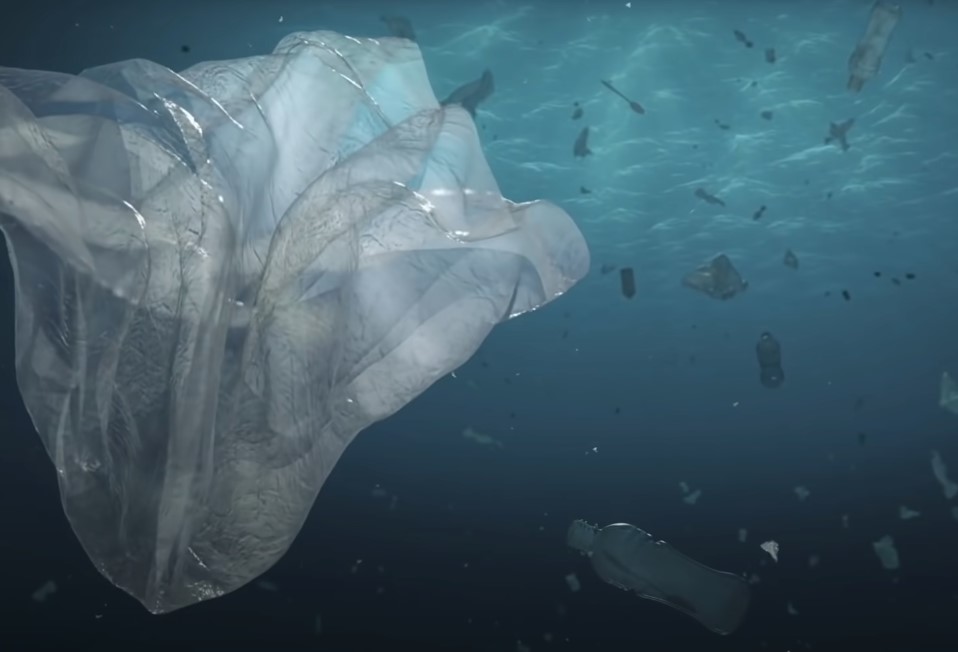 Austria’s commitment to recycling, with a participation rate of 96%, is exemplary. During my visits, I observed how deeply ingrained recycling is in the Austrian lifestyle, reflecting a societal commitment to environmental stewardship. Their ban on plastic bags and the million tonnes of waste sorted annually by households are practices that I believe should be emulated globally.
Austria’s commitment to recycling, with a participation rate of 96%, is exemplary. During my visits, I observed how deeply ingrained recycling is in the Austrian lifestyle, reflecting a societal commitment to environmental stewardship. Their ban on plastic bags and the million tonnes of waste sorted annually by households are practices that I believe should be emulated globally.
Striking Features of Austria’s Recycling System
- Exceptional Recycling Rates: Austria boasts one of the highest recycling rates globally. A remarkable 96% of its population actively participates in waste separation, according to the European Environment Agency.
- Impressive Household Participation: On average, each household in Austria sorts approximately a million tonnes of waste annually, showcasing a strong commitment to recycling at the grassroots level.
Progressive Policies and Impact
- Ban on Plastic Bags: Since the beginning of 2020, Austria has implemented a ban on plastic bags. This policy, as reported by the Austrian Ministry of Environment, is a significant step towards reducing plastic waste and its environmental impact.
- Sustainable Waste Management: The country’s approach to sustainable packing not only emphasizes recycling but also focuses on reducing waste generation and promoting the reuse of materials.
8. Canada’s Recycling Initiatives: Vancouver’s Approach
 Vancouver’s mandatory food scrap recycling is a standout initiative that I’ve seen making a real difference. The city’s approach to composting and reducing landfill waste aligns with my studies on reducing greenhouse gas emissions. It’s a testament to how local policies can effectively mitigate climate change impacts.
Vancouver’s mandatory food scrap recycling is a standout initiative that I’ve seen making a real difference. The city’s approach to composting and reducing landfill waste aligns with my studies on reducing greenhouse gas emissions. It’s a testament to how local policies can effectively mitigate climate change impacts.
Core Aspects of Vancouver’s Food Waste Management
- Mandatory Food Scrap Recycling: In Vancouver, food scraps are not allowed in standard waste bins as per Vancouver.ca. Instead, it’s compulsory to dispose of them in designated green compost bins.
- Environmental Benefits: This policy is rooted in environmental consciousness. Proper disposal of food waste in compost bins leads to less carbon dioxide emission compared to decomposition in landfills, as per the findings of Environment and Climate Change Canada.
The Positive Impact on Carbon Footprint
- Reduction in Greenhouse Gas Emissions: The composting of food scraps significantly reduces the release of methane, a potent greenhouse gas, which is commonly produced when organic matter decomposes anaerobically in landfills.
- Sustainable Waste Management: This initiative not only recycles waste but also contributes to the production of compost, which can be used to enrich soil, closing the loop in the waste management cycle.
7. Wales’ Impressive Achievements
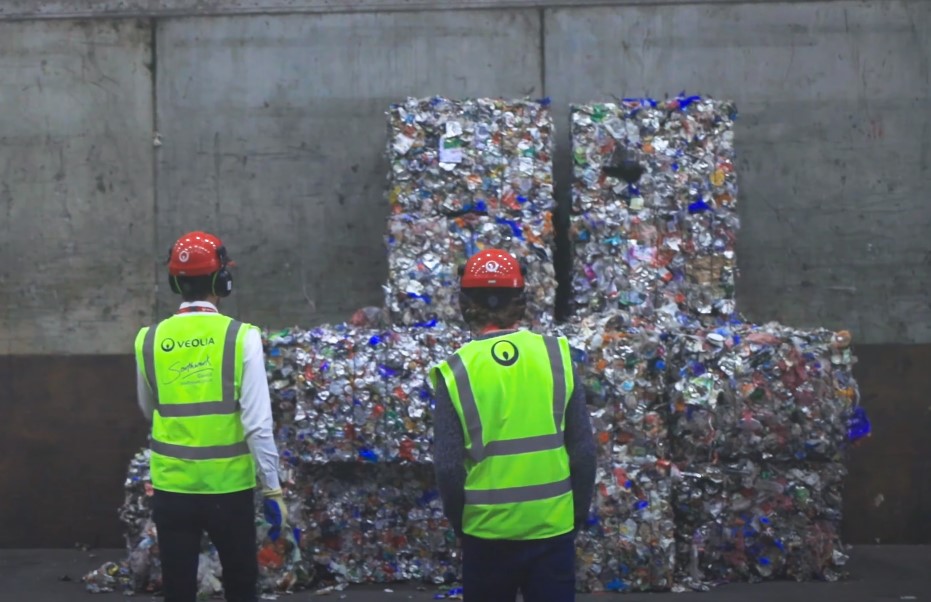 Wales’ recycling achievements, with a 65% recycling rate, are commendable as per Government of Wales. My interactions with their waste management systems showed a strong community and government collaboration, crucial for successful environmental programs. Their ambitious target for 2025 is a goal I often cite in my work as an attainable benchmark for others.
Wales’ recycling achievements, with a 65% recycling rate, are commendable as per Government of Wales. My interactions with their waste management systems showed a strong community and government collaboration, crucial for successful environmental programs. Their ambitious target for 2025 is a goal I often cite in my work as an attainable benchmark for others.
Strategies and Participation in Recycling
- High Recycling Rates: Approximately 65% of Wales’ total waste is recycled, a significant achievement that reflects the country’s commitment to environmental sustainability.
- Community and Council Involvement: In 17 out of 22 councils, residents are responsible for sorting their waste, while in the remaining areas, the council takes on this task as per same source. This collaborative effort between citizens and local authorities is key to their success.
Future Goals and Recycling Scope
- Ambitious Targets for 2025: Wales aims to recycle 70% of its waste by 2025, as stated by the Welsh Government’s environmental department. Additionally, there are plans to process the remaining 30% through waste plants, moving towards a more sustainable waste management system.
- Wide Range of Recyclable Materials: The country’s recycling program accepts various materials, including paper, glass, card, metal cans, and plastic pots, tubs, and trays, ensuring a comprehensive approach to waste reduction.
6. United States: San Francisco’s Trailblazing Recycling Program
U.S. one of the countries with the largest population in the World, must have it’s waste reduction troubles. San Francisco’s three-tier waste management system is a model I often reference in my work. Their goal to achieve zero landfill waste by 2030 is ambitious and inspiring. The city’s comprehensive approach to categorizing waste has set a standard I believe is pivotal for sustainable urban living.
The Three-Tier System of Waste Management
- Distinct Categories for Waste: San Francisco’s system divides waste into three categories: compost, recycle, and landfill, each with specific types of waste to ensure maximum recycling efficiency as per Recology stated.
- Compost Category: This includes food scraps, paper, and garden trimmings. The city’s focus on composting organic waste significantly contributes to reducing methane emissions from landfills.
- Recycling Category: Items like paper, card, glass, aluminum, hard plastics, and even plastic bags fall under this category, showcasing the city’s commitment to recycling a wide range of materials.
Minimizing Landfill Waste
- Limited Landfill Category: The landfill category is reserved for items that cannot be composted or recycled, such as broken glass, cat litter, and ceramics. This category is deliberately kept minimal to encourage waste reduction.
- Zero Landfill Goal by 2030: San Francisco has set an ambitious target to reduce landfill usage to zero by 2030, as per the city’s Department of the Environment. This goal reflects a strong commitment to sustainability and waste reduction.
5. Switzerland’s Recycling Excellence: The Zürich Model
 Zürich’s extensive recycling infrastructure, with about 12,000 recycling points, is a marvel in urban waste management. My experiences in Switzerland have shown me the effectiveness of mandatory recycling laws and the potential of converting waste into energy, a practice that significantly reduces environmental impact.
Zürich’s extensive recycling infrastructure, with about 12,000 recycling points, is a marvel in urban waste management. My experiences in Switzerland have shown me the effectiveness of mandatory recycling laws and the potential of converting waste into energy, a practice that significantly reduces environmental impact.
- Numerous Recycling Points: Zürich boasts around 12,000 recycling points, ensuring easy access for residents to dispose of their recyclables.
- Diverse Recycling Options: The city offers both door-to-door collection and recycling collection points, catering to the convenience of its residents and encouraging higher participation in recycling activities.
Mandatory Recycling and Its Impacts
- Legal Obligation to Recycle: In Switzerland, recycling is not just a civic duty but a legal requirement. Non-compliance can lead to fines, as per the Swiss Federal Office for the Environment, underscoring the country’s serious approach to waste management.
- High Recycling Rate and Energy Production: About 50% of waste in Switzerland is recycled as per Solar Impulse. The remaining waste is not discarded carelessly but is used to produce energy, contributing to the country’s renewable energy initiatives.
Zero Landfill Policy and Environmental Benefits
- No Waste to Landfills: Remarkably, neither the city of Zürich nor the country of Switzerland sends any waste to landfills. This policy significantly reduces greenhouse gas emissions, particularly methane, which is commonly released from landfill sites.
- Reduction in Carbon Footprint: By recycling and converting waste into energy, Switzerland effectively reduces its carbon footprint, setting an example for sustainable urban waste management.
4. Singapore’s Waste Management Strategy
 Singapore’s minimal landfill usage and corporate responsibility for waste disposal are practices I admire and often discuss in my lectures. The city’s systematic approach to waste collection and processing, particularly the incineration of non-recyclable waste, is a forward-thinking strategy that addresses both waste reduction and energy recovery.
Singapore’s minimal landfill usage and corporate responsibility for waste disposal are practices I admire and often discuss in my lectures. The city’s systematic approach to waste collection and processing, particularly the incineration of non-recyclable waste, is a forward-thinking strategy that addresses both waste reduction and energy recovery.
Corporate Responsibility and Waste Collection
- Corporate Accountability for Waste: According to Mongabay In Singapore, companies bear full responsibility for the waste they generate, ensuring that waste disposal is handled responsibly and sustainably.
- Organized Waste Collection System: Waste is collected using designated trucks and transported to centers where it is meticulously sorted into various recycling streams, reflecting the city’s commitment to systematic waste management.
Waste Processing and Landfill Usage
- Limited Landfill Dependence: Singapore’s reliance on its sole landfill is remarkably low. This landfill is primarily used for disposing of unrecyclable plastics, a testament to the city’s efficient recycling practices.
- Incineration of Non-Recyclable Waste: Waste that cannot be recycled is incinerated as per DBS Bank. This process not only reduces the volume of waste but also helps in energy recovery, contributing to the city’s energy needs.
3. South Korea’s Remarkable Progress in Food Waste System
 South Korea’s dramatic increase in food waste recycling, from 2% to 95%, is a phenomenon I find extraordinary. The food waste fee system is an innovative approach that I believe can be a game-changer in waste management globally. Their extensive recycling capabilities are a testament to what can be achieved with determined policy and public participation.
South Korea’s dramatic increase in food waste recycling, from 2% to 95%, is a phenomenon I find extraordinary. The food waste fee system is an innovative approach that I believe can be a game-changer in waste management globally. Their extensive recycling capabilities are a testament to what can be achieved with determined policy and public participation.
Implementation of the Food Waste Fee System
- Food Waste Fee for Households: A pivotal factor in this success has been the implementation of a food waste fee. Households pay a small fee for each bag of biodegradable food scraps, as per the Ministry of Environment of South Korea. This policy incentivizes waste reduction and proper sorting at the source.
- Encouraging Waste Minimization: The fee system not only encourages recycling but also motivates residents to produce less food waste, aligning with the country’s broader environmental goals according to the Guardian.
Rigorous Waste Sorting and Recycling Practices
- Mandatory Sorting and Preparation: In South Korea, all waste must be sorted into specific categories. Additionally, recyclable items must be flattened or compressed before recycling, ensuring efficient processing.
- Broad Spectrum of Recyclable Materials: The country’s recycling capabilities are extensive, covering a wide range of materials including steel, fabric, electronics like TVs, large items like sofas, and even styrofoam.
2. England’s Initiatives: The Zero Waste Leeds Model
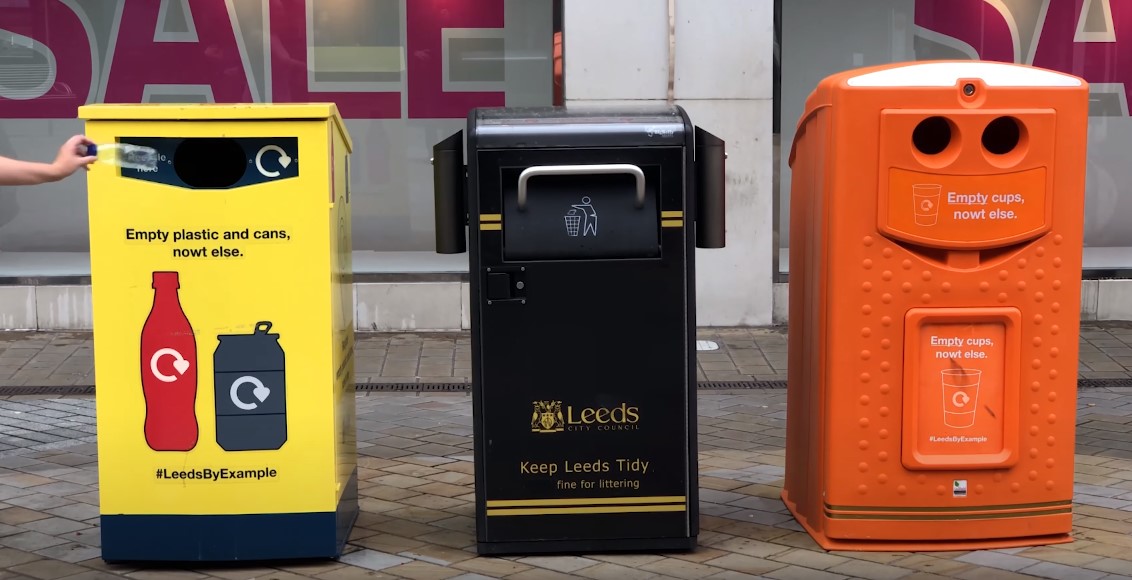 Leeds’ Zero Waste initiative, particularly its glass recycling and school uniform recycling project, is a model of community-centric waste management. My observations in Leeds showed how local initiatives could lead to significant environmental and social benefits, a principle I often advocate for in sustainable waste management discussions.
Leeds’ Zero Waste initiative, particularly its glass recycling and school uniform recycling project, is a model of community-centric waste management. My observations in Leeds showed how local initiatives could lead to significant environmental and social benefits, a principle I often advocate for in sustainable waste management discussions.
Multifaceted Approach to Waste Management
- Broad Recycling and Reuse Activities: Zero Waste Leeds goes beyond traditional recycling by also focusing on reusing unwanted items. This initiative not only recycles a wide array of waste but also provides valuable information and tips on recycling practices.
- Significant Glass Waste Recycling: Last year, Leeds recycled an impressive 12,000 tons of glass waste. To facilitate this, the city has strategically placed 700 bottle banks across the area, making glass recycling more accessible to residents.
Community-Centric Projects and Textile Recycling
- School Uniform Recycling Project: A notable project under Zero Waste Leeds involves the collection and redistribution of unneeded school uniforms and sports kits. This initiative not only supports families in need but also significantly reduces textile waste in the community.
- Impact on Local Community and Environment: Such projects exemplify how recycling can have a dual impact – benefiting the local community while simultaneously addressing environmental concerns like waste reduction.
1. Germany’s Leadership in Waste Reduction Strategies
Germany’s recycling efficiency, especially its Green Dot policy and the five-bin system, is something I frequently highlight as best practices in waste management. Their approach to reducing packaging waste and the responsibility placed on both consumers and producers reflect a comprehensive and effective waste management strategy that I believe is exemplary on a global scale.
Key Achievements in Waste Management
- Significant Reduction in Total Waste: Since the introduction of its recycling scheme, Germany has managed to reduce its total waste by 1 million tons annually, a notable achievement in waste reduction as per Research Gate.
- World-Leading Recycling Rate: The country recycles about 70% of all waste produced, the highest rate worldwide, showcasing its efficiency and commitment to sustainable practices.
Progressive Policies and the Green Dot System
- Corporate Responsibility for Packaging: German policies mandate that companies are responsible for the recyclability of their packaging according to Packhelp. This approach ensures that businesses consider environmental impacts right from the product design stage.
- Consumer Responsibility for Disposal: Once consumers purchase goods, they are responsible for the proper disposal of the packaging, encouraging public participation in recycling efforts.
- The Green Dot Policy: This policy requires all recycled packaging to be marked with a Green Dot, signifying compliance with recycling standards. Products need to be approved to use this mark, ensuring transparency and accountability in packaging recycling.
- Packaging Fee Incentive: Companies are charged a fee for using more packaging, which has led to the use of less and thinner materials in packaging, such as glass, paper, and metal.
Efficient Waste Sorting System
- Five Different Bins for Waste Segregation: Germany employs a system of five distinct bins to separate waste and rubbish effectively. This systematic segregation facilitates efficient recycling and waste management.
10 More Worth Mention Countries
11. Sweden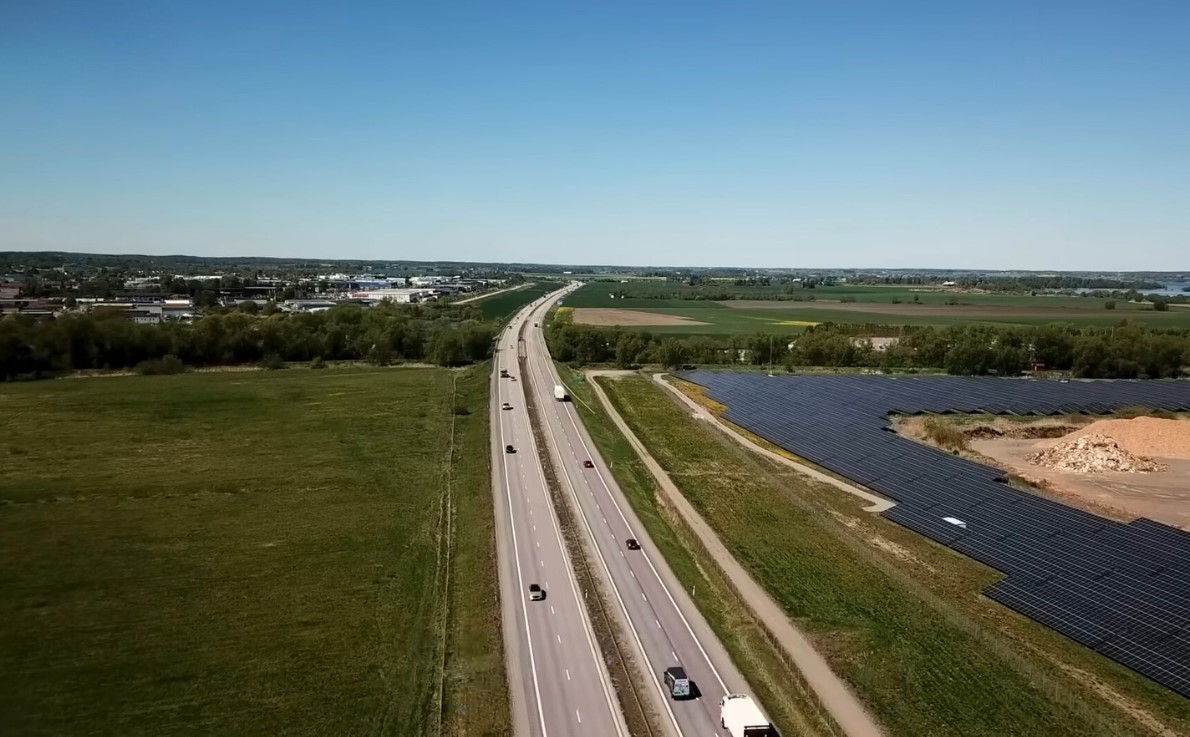
- High Recycling Rate: Sweden recycles nearly 50% of its waste.
- Waste-to-Energy Success: Over 50% of waste is converted into energy, powering homes and businesses.
- Minimal Landfill Use: Less than 1% of Swedish household waste goes to landfills.
12. Japan
- Strict Sorting Rules: Residents must follow meticulous sorting guidelines.
- High Recycling Rates: Japan recycles about 20% of its waste, with a strong focus on technology and precision.
- Innovative Solutions: Pioneering in advanced recycling technologies and waste reduction methods.
13. Belgium
- Impressive Recycling Rate: Belgium recycles about 55% of its waste.
- Advanced Sorting Systems: Utilizes state-of-the-art technology for waste sorting and recycling.
- Strong Policy Support: Government policies strongly encourage recycling and waste reduction according to UNEP.
14. Netherlands
- High Recycling Ambitions: Aims to recycle 75% of household waste.
- Innovative Practices: Leading in the use of recycling technologies and sustainable waste management.
- Circular Economy Focus: Strong emphasis on creating a circular economy.
15. Norway
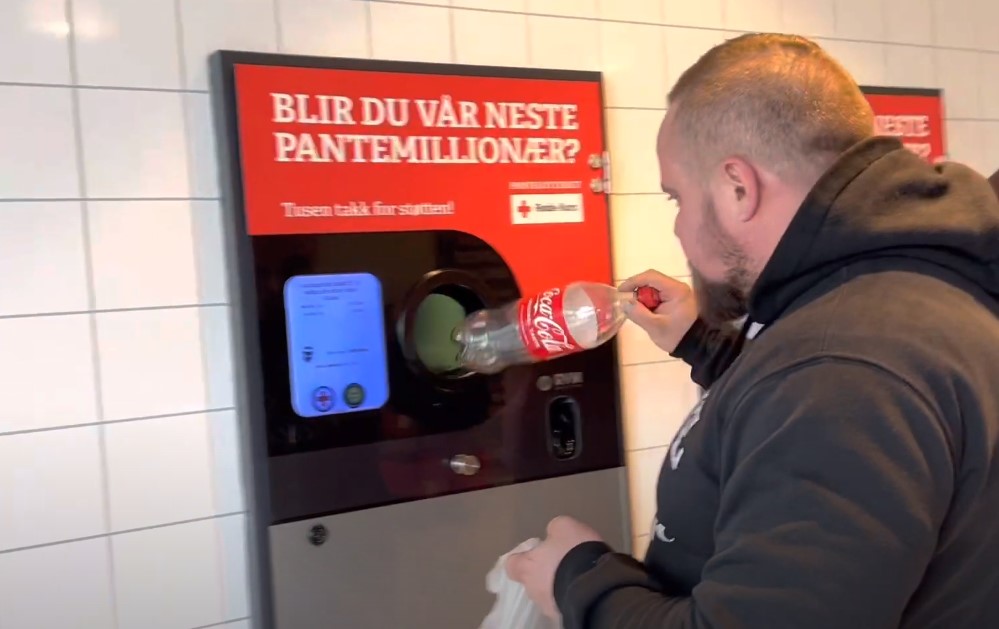
- Effective Bottle Return Scheme: High participation in bottle deposit schemes.
- Recycling Incentives: Financial incentives for recycling certain types of waste.
- Sustainable Practices: Emphasis on sustainable waste management and reducing landfill use.
16. Denmark
- Advanced Recycling Techniques: High-tech recycling facilities.
- Focus on Sustainability: Strong emphasis on sustainable living and waste reduction.
- Waste-to-Energy: Significant investment in waste-to-energy plants according to European Investment Bank.
17. France
- Diverse Recycling Programs: Wide range of recycling programs for different waste types.
- Policy Driven: Strong government policies to promote recycling and reduce waste.
- Innovative Approaches: Experimenting with new methods of waste management and recycling.
18. Italy
- Increasing Recycling Rates: Steady increase in the percentage of waste recycled.
- Regional Variations: Significant differences in recycling rates and practices across regions.
- Focus on Organic Waste: Strong emphasis on composting and recycling of organic waste.
19. Finland
- High Participation in Recycling: Strong culture of recycling among citizens.
- Innovative Waste Management: Utilizing cutting-edge technology for waste sorting and recycling.
- Sustainable Development Goals: Aligned with achieving the UN’s Sustainable Development Goals.
20. Australia

- Community Engagement: Strong community involvement in recycling initiatives.
- Challenges and Progress: Facing challenges in waste management but making significant progress.
- Recycling Innovations: According to DCCEEW Australia is Investing in new recycling technologies and infrastructure.
Frequently Asked Questions
1. What Are the Economic Benefits of Recycling?
- Job Creation: Recycling industries often create more jobs than landfill or incineration facilities.
- Market Development: Recycling can stimulate the development of new markets for recycled materials.
- Cost Savings: Efficient recycling programs can reduce the costs of waste management for municipalities and businesses.
2. How Does Recycling Contribute to Energy Conservation?
- Reduced Energy Consumption: Manufacturing products from recycled materials typically requires less energy than producing them from virgin materials.
- Energy Recovery: Some waste-to-energy processes convert non-recyclable waste into usable energy.
3. What Are the Challenges in Implementing Effective Recycling Programs?
- Public Participation: Ensuring consistent and correct participation by the public can be challenging.
- Economic Viability: Balancing the costs of recycling programs with their benefits is often a significant challenge.
- Technological Limitations: Some materials are difficult to recycle efficiently due to technological constraints.
4. How Can Individuals Contribute to Better Recycling Practices?
- Proper Sorting: Following local guidelines for waste sorting can significantly improve recycling efficiency.
- Reducing Waste: Minimizing waste generation and choosing products with less packaging can reduce the burden on recycling systems.
- Community Involvement: Participating in local recycling initiatives and education programs can enhance community recycling efforts.
5. What Role Does Government Policy Play in Recycling?
- Legislation: Governments can enact laws that mandate recycling and penalize non-compliance.
- Incentives: Providing incentives for businesses and individuals to recycle can encourage participation.
- Education and Awareness: Government-led campaigns can raise awareness about the importance of recycling and how to do it correctly.
6. Are There Any Innovative Recycling Technologies on the Horizon?
- Advanced Sorting Technologies: Innovations in sorting technologies can improve the efficiency of recycling processes.
- Biodegradable Materials: Development of new biodegradable materials can reduce reliance on traditional plastics.
- Chemical Recycling: This process can break down plastics into their chemical components for reuse, offering a solution for currently non-recyclable plastics.
7. How Do Cultural Factors Influence Recycling Practices?
- Community Values: The importance placed on environmental stewardship in a community can impact participation in recycling programs.
- Education and Awareness: Cultural emphasis on education about environmental issues can lead to more effective recycling practices.
- Traditions and Norms: Cultural norms around consumption and waste can either hinder or help recycling efforts.
8. What Is the Future of Global Waste Management?
- Circular Economy: A shift towards a circular economy, where waste is minimized, and materials are reused, is a growing trend.
- Smart Waste Management: The use of technology, like IoT devices, to manage waste more efficiently is on the rise.
- Global Collaboration: Increased international cooperation on waste management issues, including recycling standards and technologies, is likely to grow.
Final Thoughts
In conclusion, exploring the recycling and waste management strategies of these ten countries, along with additional insights from other nations, offers a panoramic view of the diverse approaches and innovations in tackling one of the most pressing environmental challenges of our time. From Brazil’s socially inclusive recycling programs to Germany’s meticulous waste segregation systems, each country presents unique solutions that contribute to a more sustainable future.
Disclaimer
The content presented in this discussion is derived from various online sources and reflects personal thoughts and opinions. It is intended for informational purposes only and should not be considered as an official statement or a comprehensive analysis of the recycling and waste management practices of the countries mentioned. The views expressed are solely those of the author and do not represent the official stance of any organization or entity. While efforts have been made to ensure the accuracy of the information, the author and the platform disclaim any responsibility for any inaccuracies or omissions. Readers are encouraged to conduct their own research and consult professional sources for more detailed and current information on the subject.













